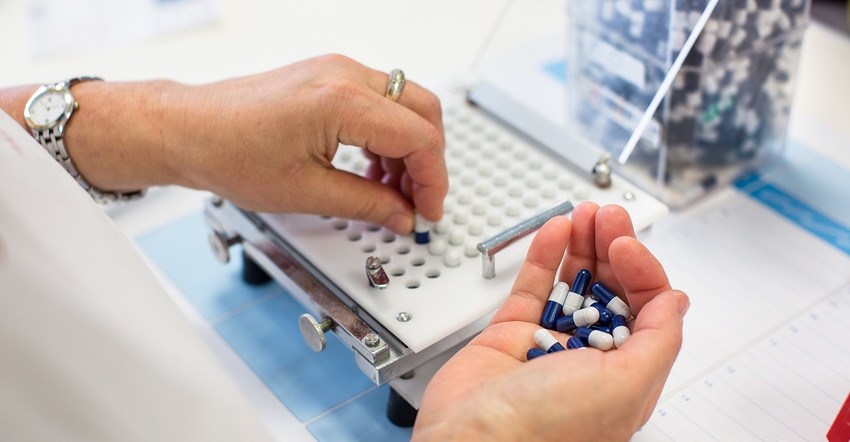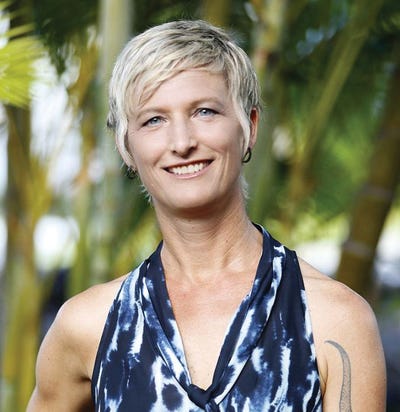Ensuring good lab practices is key to compliance
Supplement brands should choose testing labs that following good lab practices (GLPs) for testing and validating product safety.

FDA Code of Federal Regulations (CFRs) outline GMPs (good manufacturing practices) for dietary supplements. These regulations include aspects of good laboratory practices (GLPs) in subpart J for laboratory operations, and in 21 CFR 111.70, which requires manufacturers and distributors of supplements to set specifications for a variety of quality parameters including identity, purity, strength and composition.
A brand must understand its product, including its unique attributes, origin, processing, finished good form, intended use and end consumer. Only then will the brand know what to test for and what specifications to set, depending on what nutrients the product offers and what contaminants may be unique to it. Many in this industry believe in the botanical or vitamin being offered to consumers, want to be certain that it’s safe and is delivering what is promised. To maintain integrity and be compliant, a brand must be sure it can trust its contract lab partners and their test results.
Specification development for a product is a critical first step to ensuring a brand has a compliant, non-adulterated, health-promoting dietary supplement to offer consumers. The botanical carotenoid astaxanthin, derived from Haematococcus pluvialis microalgae, offers an example on how to set specifications. Astaxanthin is a free-radical-quenching antioxidant with a great deal of clinical research supporting skin (J Clin Biochem Nutr. 2017 Jul;61[1]:33-39), cardiovascular (Mar Drugs. 2016 Feb 5;14[2]) and eye health (Cutan Ocul Toxicol. 2019 Mar;38[1]:59-65). Natural astaxanthin supplements are derived from the whole dried microalgae, extracted and encapsulated into softgels. The type of extraction determines the need to identify a lab and test for possible contaminants. If an ethanol extraction process is used, a brand should contract a lab for residual solvent testing. Whereas this would not be necessary if the astaxanthin ingredient is supercritical CO2 extracted.
Finished softgels will have several specifications. For identity, a brand will want to reference a known monograph such as United States Pharmacopeia (USP) or Food Chemicals Codex (FCC), whenever possible, for the appropriate test method. It could be a DNA test, or a high-performance liquid chromatography (HPLC) analysis, which is often also used to determine strength. Purity includes absence of E. coli and Salmonella, and allergens like soy or gluten. If the brand makes gluten-free claims, per 21 CFR 111.320, it must verify the laboratory test method is appropriate and whether the detection limit is appropriate. FDA compliance requires the test to detect down to 20 ppm, and some third-party certifications require down to 10ppm.
When selecting a lab, a brand will want to assess its specialty and experience, including its library of botanical references for identity, and familiarity with the product type and matrix. The lab should be FDA registered, and have current accreditation to International Organization for Standardization (ISO) 17025 or another standard like USDA. The lab should participate in the AOAC International proficiency testing program and undergo an independent assessment of the accuracy and reliability of their analytical data. Participation in programs like this ensure the lab’s management is committed to a level of excellence and accuracy.
When qualifying a lab, brands should obtain a copy of the lab’s current certifications and ask about the qualifications and professional affiliations of the lab personnel. It’s recommended personnel have memberships in the American Chemical Society, and the lab technicians testing for pathogens have a minimum of a bachelor’s degree in microbiology.
The calibration and qualification programs utilized for the lab’s analytical equipment are important as well. The equipment should be validated and calibrated per the manufacturer’s recommendation. GMPs require, as outlined in 21 CFR 111.303, that the lab use reliable test methods and standards, such as USP or AOAC. These test methods should be accurate and reproducible. 21 CFR 111.315 requires supplement brands to use appropriate criteria for establishing appropriate test methods and using appropriate standard reference materials.
Vetting the lab with these criteria, with certain aspects weighted based on the type of testing, allows a supplement brand to approve it as a partner. Ongoing monitoring of labs is also important to ensure compliance. Brands should establish a calendar to check back with the lab to ensure its registrations and certificates are current, and to inquire whether the lab personnel, standards, equipment or methods have changed significantly. Such changes may impact the lab’s ability to maintain GLPs and provide accurate results. Ultimately, the accuracy of test results can tip the balance from offering a safe, health-promoting dietary supplement to selling an adulterated product.
Learn more about good laboratory practices (GLPs) from Jen Johansen during the “Trust in Testing: Contract Labs for Safe, Compliant Supplements” session on Thursday, Oct. 17, 2019 at 2:00 p.m. at SupplySide West in Las Vegas. This session is underwritten Eurofins.
Jen Johansen, vice president of quality, regulatory and government affairs, Cyanotech Corp., has 15 years of experience in quality and regulatory, and is a member of the Regulatory Affairs Professional Society, is an American Society of Quality certified HACCP auditor, and is a preventive controls qualified individual (PCQI). Johansen is the chairwoman for the Hawaii State Chapter of United Natural Products Alliance (UNPA) and is on the Kona Kohala Chamber of Commerce Economic Development Committee and Sustainability Committee.
About the Author(s)
You May Also Like






.png?width=800&auto=webp&quality=80&disable=upscale)